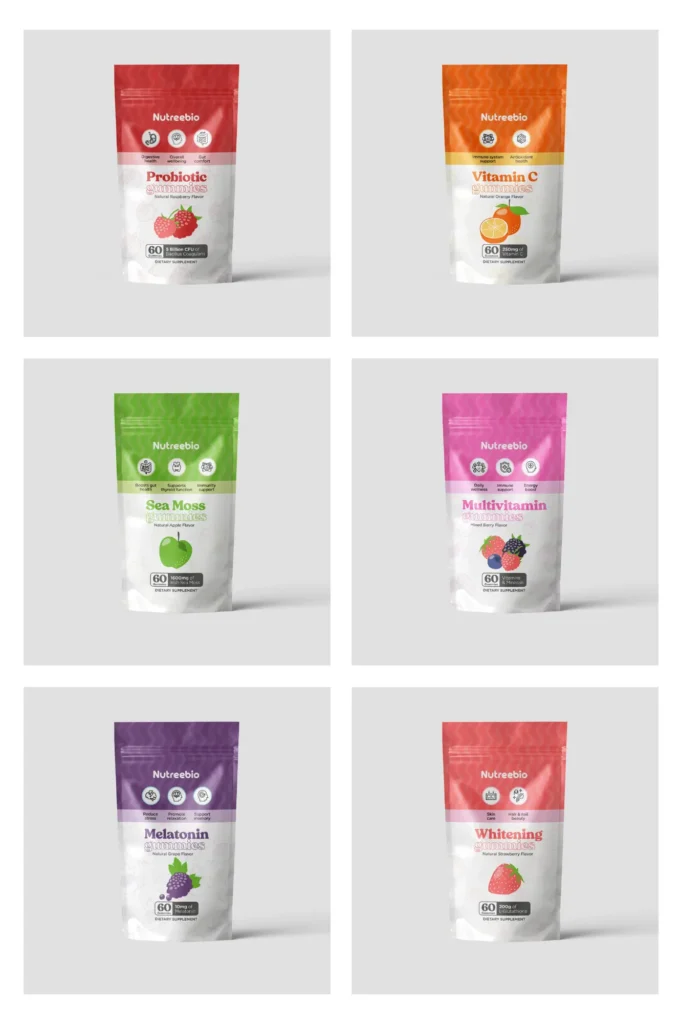Consumers are no longer just passive recipients of food on the market, but have become explorers and choosers of functional foods that actively seek to meet their personal health needs. This consumer-led market dynamic has prompted food manufacturers to be more keenly aware of and respond to consumers' personalized needs, and to continuously innovate and enrich product lines to meet the increasingly diversified market.
In this process, consumer education plays a vital role. With the widespread dissemination of health knowledge, consumers have a deeper understanding of functional foods, and they have begun to actively explore the nutrients in food and its potential health benefits. This mastery of health knowledge has given consumers greater confidence, enabling them to make food choices more wisely, thus promoting the booming development of the functional food market.
1. From "passive" to "active", the outbreak of functional foods is coming
The outbreak of functional foods is the result of the combined effects of consumer demand, health awareness, scientific and technological progress, and market innovation. As consumers shift from passive to active, the functional food market will usher in a broader development space, heralding the arrival of a new era of food with health and personalization as the core.
The progress and innovation of science and technology provide unlimited possibilities for the research and development of functional foods. From traditional nutritional supplements to modern genetic engineering, food science research is exploring more possibilities to create new functional foods that can meet consumer needs. These foods can not only provide basic nutritional support, but also provide solutions for specific health problems.

2. Active health: both offensive and defensive, a new medical treatment that integrates eating, living and moving
The development of the health industry can be divided into several stages:
Health 1.0 era
This stage usually refers to the traditional medical service stage, which focuses on disease treatment and focuses on diagnosis and treatment activities after the disease occurs, and pays less attention to disease prevention and health maintenance.
Health 2.0 era
With the transformation of the medical model, the health 2.0 era began to emphasize the importance of health management and disease prevention. At this stage, people began to realize the importance of a healthy lifestyle, such as a reasonable diet, regular physical examinations and moderate exercise.
Health 3.0 era
The health 3.0 era has developed further. This stage is characterized by the combination of medical services and information technology. It has begun to use technologies such as the Internet and big data to improve the quality and efficiency of health services and achieve more extensive health education and disease management.
At present, most countries in the world have basically entered the era of health 3.0, but they are still facing challenges such as population aging, low birth rate, and unbalanced regional development, which prompts the big health industry to further upgrade, that is: the era of health 4.0, that is, the era of active health, with more emphasis on prevention and personal health responsibility.
Health 4.0 era
The era of health 4.0 represents that we are experiencing a historic transformation from passive medical treatment to active health. The core of this transformation is no longer relying solely on disease treatment, but achieving a more comprehensive and in-depth management of health through disease prevention. Active health emphasizes a new model of both offense and defense, which requires us to take comprehensive health management measures in all aspects of life - eating, living, and moving.
In terms of "eating", active health advocates a "big food view", that is, from the traditional "object-centered" food view to a diet that pays more attention to nutritional balance and personalized needs. This means that our diet must not only meet basic nutritional needs, but also be adjusted according to personal health status, genetic characteristics and lifestyle. Through precise nutritional intervention, we can effectively prevent various diseases caused by malnutrition and improve overall health.
"Living" has been redefined as an important part of health management, which emphasizes health maintenance and disease prevention in an out-of-hospital environment. This concept breaks through the traditional hospital-centered medical model and expands the position of health management to three dimensions: hospital, community and family, forming a comprehensive health protection network.
As for "movement", the active health model encourages people to actively participate in sports activities and improve their physical activity levels. In modern society, due to changes in working methods and living habits, the amount of physical activity of residents has generally decreased, which poses a serious threat to health. Therefore, encouraging and promoting residents to participate in various forms of physical exercise through policy guidance and community support is crucial to improving the health level of the whole people.
In short, active health is a new medical model that requires us to take comprehensive measures in the three aspects of eating, living and moving, and to achieve comprehensive management and optimization of health through interdisciplinary and multidisciplinary cooperation. This is not only an investment in personal health, but also a contribution to the sustainable development of society.
3. Functional food: the only way to achieve a leap forward in active medical care
In the era of health 4.0, functional foods are no longer marginal products. With their unique nutritional value and bioactive ingredients, they meet the growing demand of modern people for a healthy lifestyle. Functional foods provide targeted nutritional support through scientific design and formulation to help people maintain and improve their health in daily life.
In recent years, many new functional foods have appeared on the market, such as functional soft candies with apple cider vinegar, which are designed to promote intestinal health and enhance digestion; another example is functional snacks rich in plant sterols, which not only meet consumers' needs for healthy diets, but also help lower cholesterol levels and maintain cardiovascular health.
In the field of personalized nutrition, some innovative companies have launched functional foods customized based on consumers' personal health data, such as low-GI foods customized according to consumers' blood sugar levels, or vitamin supplements customized according to consumers' nutritional genomics information, which are all manifestations of precision nutrition.
It can be seen that the market for functional foods is rapidly expanding, from infant formula foods for specific populations, nutritional supplements for the elderly, to sports nutrition products and weight management products for specific lifestyles, all of which show the wide application of functional foods in active health management. As consumers' awareness of health products and health consciousness increase, the market demand for functional foods will continue to grow. By continuously exploring and developing new functional ingredients and combining them with modern technology, companies can provide consumers with more diverse and personalized health choices.
In short, functional foods, as the only way to achieve active medical leaps, are becoming the backbone of the development of the Health 4.0 era. They help people prevent diseases, improve health, and ultimately achieve a comprehensive upgrade of healthy life by providing scientific nutritional support. With the continuous development of science and technology and the continuous evolution of consumer demand, functional foods will promote innovation and growth in the health industry.
Nutreebio is a personalized supplement provider that specializes in providing personalized supplements based on customer needs, including gummies, tablets, capsules, soft gels and powders, etc. In addition, Nutreebio has developed a proprietary ingredient database containing classic formula data developed and conditioned by scientific laboratories.


Conclusion
The outbreak of the functional food market is a profound shift from passive acceptance to active choice for consumers. It not only reflects people's increasing attention to a healthy lifestyle, but also reflects the evolution of social values and the growth of personalized needs. With the continuous advancement of science and technology, the research and development and innovation of functional foods provide consumers with a variety of choices and meet their deep-seated needs for disease prevention and quality of life. This market dynamic not only reflects the improvement of consumer autonomy and changes in health concepts, but also represents a positive response by companies to personalization, sustainability and social responsibility.


